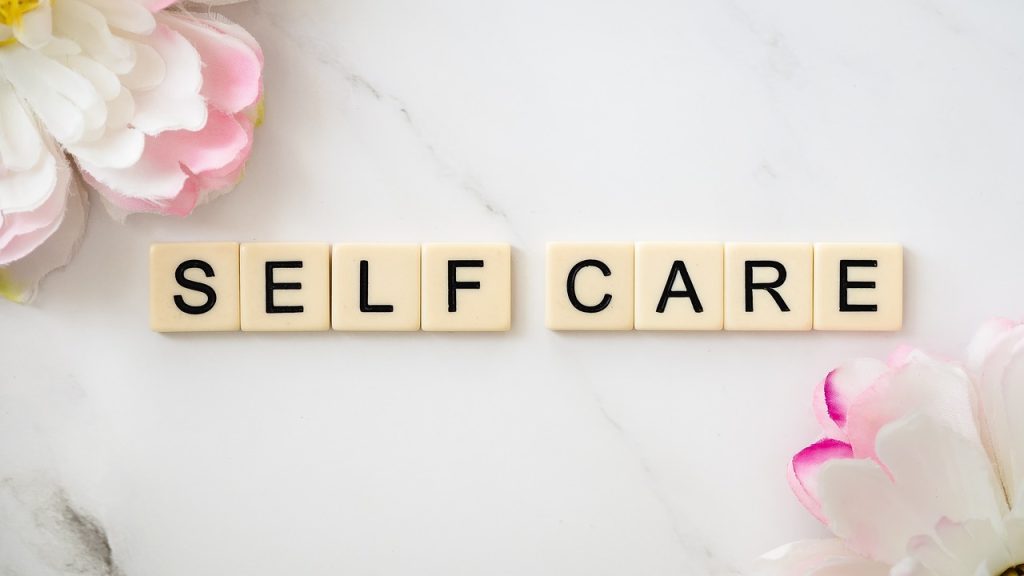Self-Care: Practices & Priorities
I. Introduction
Self-care is the practice of taking care of oneself, both physically and mentally, in order to maintain overall well-being. It is an essential aspect of maintaining a healthy lifestyle and can include activities such as exercise, meditation, healthy eating, and getting enough sleep.
In today’s fast-paced world, it can be easy to get caught up in the demands of daily life and neglect our own needs. But by making time for ourselves and engaging in activities that bring us joy and relaxation, we can improve our overall well-being and reduce stress.

II. Setting aside time for yourself
One of the most important aspects of self-care is setting aside time for yourself. This can mean different things for different people, but the key is to find activities that make you feel relaxed, recharged, and fulfilled. Some examples of activities that can be beneficial for self-care include reading, listening to music, spending time in nature, or practicing a hobby.
It’s important to schedule regular time for yourself, whether it be daily, weekly, or monthly. This can be as simple as setting aside 15 minutes each day to read, or going for a walk once a week. The key is to make sure that this time is dedicated to yourself and your well-being, and not just an afterthought or something that you do when you have free time.

III. Physical self-care
Physical self-care is a key component of overall well-being. Regular exercise, eating a balanced diet, and getting enough sleep are all important for maintaining good health.
Exercise is a great way to improve physical health, release endorphins, and reduce stress. It doesn’t have to be anything intense, it can be as simple as going for a walk, bike ride, or swimming. The key is to find something that you enjoy and can make a regular part of your routine.
Eating a balanced diet can provide the body with the necessary nutrients to function properly. It’s important to eat a variety of fruits, vegetables, and whole grains, as well as lean proteins, and healthy fats. Avoiding processed foods and excessive amounts of sugar can also be beneficial for overall health.
Getting enough sleep is also crucial for physical and mental well-being. Adults need an average of 7-9 hours of sleep per night. Not getting enough sleep can lead to a variety of health problems, including fatigue, depression, and an increased risk of heart disease.

IV. Mental self-care
Mental self-care is just as important as physical self-care. Activities such as meditation, journaling, and therapy can help to reduce stress, improve mental clarity, and promote emotional well-being.
Meditation can be a great way to reduce anxiety and improve focus. It can be as simple as taking a few minutes each day to sit quietly, close your eyes, and focus on your breath. There are also guided meditations available online that can be helpful for beginners.
Journaling is another great way to process thoughts and emotions. It can be as simple as writing down your thoughts each day, or you can use prompts to help guide your writing. Journaling can be a helpful way to understand and process your emotions, as well as to track progress over time.
Therapy can provide a safe space to explore and address any underlying issues. It can be helpful for those who are struggling with mental health issues such as depression or anxiety, as well as for those who are dealing with a traumatic event or difficult life circumstances.

V. Self-compassion
Self-compassion is an important aspect of self-care. It’s important to be kind to yourself and give yourself a break when you make mistakes or experience setbacks. We are all human, and it’s important to remember that we are all going to make mistakes and have moments of failure. Instead of beating yourself up over these mistakes, try to view them as opportunities for growth and learning.
It’s also important to remember that self-compassion is not the same as self-indulgence. It’s important to be honest with yourself and take responsibility for your actions, but also to be kind to yourself and not dwell on your mistakes.

VI. Setting boundaries
Another important aspect of self-care is setting boundaries. This means protecting your time and energy and being mindful of what commitments you take on. It’s okay to say no to things that don’t align with your values or goals.
Setting boundaries can also mean setting limits on how much time you spend on social media, or how much time you spend working. It’s important to have balance in your life and to make sure that you’re not sacrificing your well-being for the sake of others.
VII. Emotional and mental health
Emotional and mental health are key components of overall well-being. Acknowledging and accepting your emotions, and learning to identify and process them, is an important part of self-care.
It’s also important to be mindful of your emotional and mental health and to seek help if needed. This can include therapy, medication, or other forms of treatment.

VIII. Taking care of the environment
Taking care of the environment is also an important aspect of self-care. This can include keeping a clean and organized space, surrounding yourself with supportive people, and spending time in nature.
A clean and organized space can help to reduce stress and improve mental clarity. Surrounding yourself with supportive people can provide a sense of community and belonging. And spending time in nature can have a calming effect and help to improve overall well-being.

IX. Conclusion
Self-care looks different for everyone. It’s important to experiment and find what works best for you. The key is to make self-care a regular part of your daily routine, and to remember that it’s not selfish, but necessary for effectively taking care of others and living a fulfilling life.
Remember that self-care is not a one-time thing, but a lifelong commitment. By making self-care a regular part of your life, you can improve your overall well-being and reduce stress.
Self-care doesn’t have to be expensive. Simple things like taking a walk, reading a book, or journaling can be just as effective as more elaborate self-care practices.
It’s also important to be mindful of cultural and societal influences on self-care. For example, self-care for women is often framed as taking care of oneself in order to be better for others, rather than for one’s own well-being. It’s important to challenge these societal expectations and make self-care a priority for our own well-being.
Practice self-care in all aspects of our lives, including work. This can include taking breaks throughout the day, setting boundaries with work, and prioritizing our mental and physical well-being in the workplace.
Lastly, know that self-care is not a quick fix for deeper issues. While it can be a helpful tool for managing stress and improving well-being, it’s important to address underlying issues and seek professional help if needed.
Self-care is an ongoing process and it’s important to be patient with yourself. Remember, self-care is about taking care of yourself in a holistic and balanced way. It’s not about perfection, it’s about progress.
In conclusion, self-care is an essential aspect of overall well-being. It’s important to make self-care a regular part of your daily routine and to experiment to find what works best for you. Remember to be kind to yourself, set boundaries, prioritize your emotional and mental health, take care of the environment, and challenge societal expectations. By making self-care a priority, you can improve your overall well-being and reduce stress.


